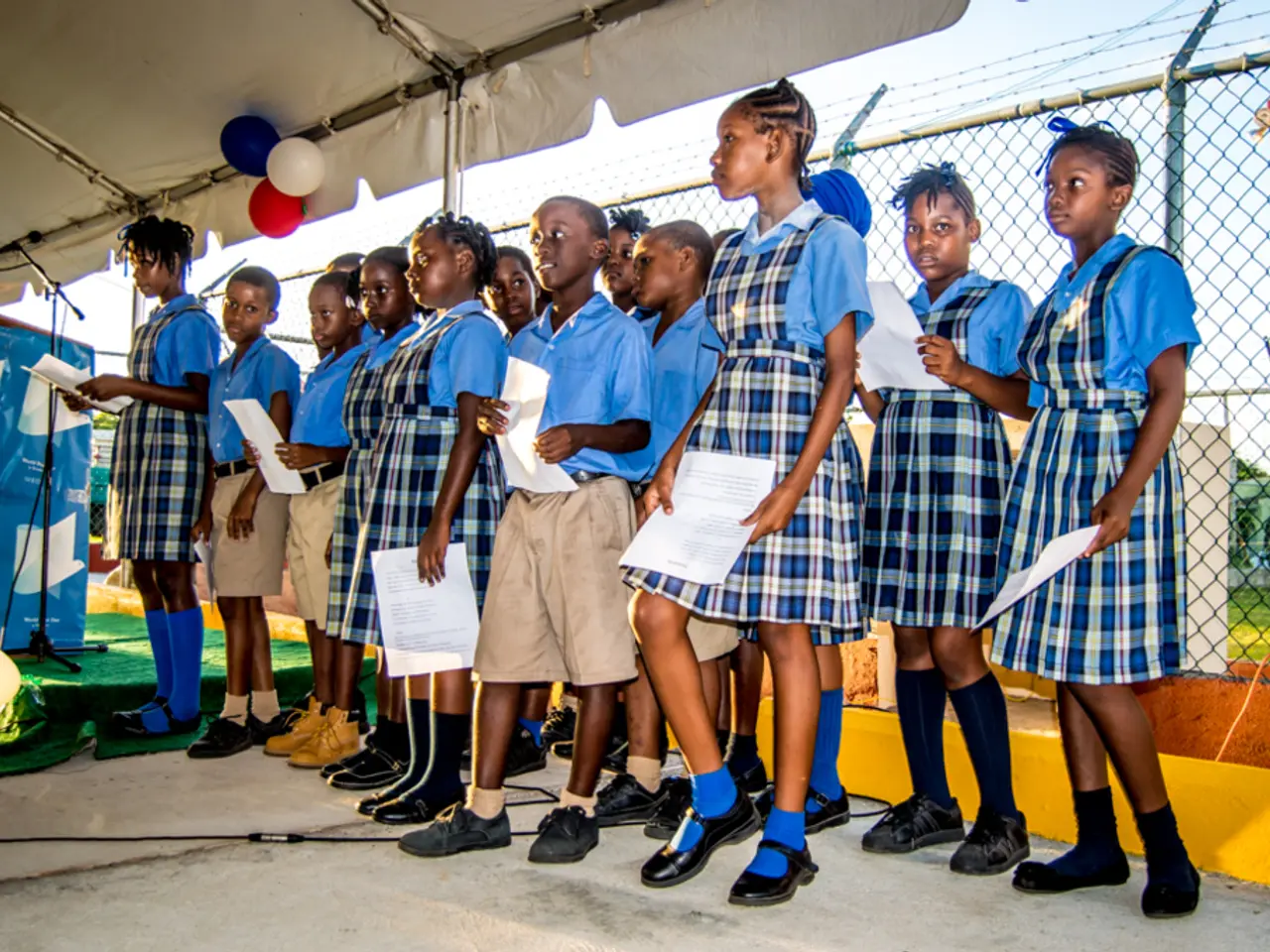Enhanced Assessments of Skills Being Implemented More Frequently in Schools across NRW - Enhancing School Assessments: NRW Boosts Surveys on Academic Achievement
The Ministry of Education in North Rhine-Westphalia (NRW) has announced a significant shift in educational policies, aiming to enhance the basic competencies of students. The Minister of Education, Dorothee Feller (CDU), revealed these changes in a video message, outlining the introduction of increased student achievement assessments and the development of a student feedback system.
The new student feedback system, a key component of the Ministry's "School Compass 2030" initiative, is designed to gain insight into the social-emotional development of children and young people. Unlike a student feedback system that might encourage teacher bashing, this new system will focus on students answering questions about topics such as the start of class, their well-being, or support from their parents.
In addition to the increased student achievement assessments, the Ministry is also strengthening the subjects of German and mathematics in primary schools. This will be achieved by introducing an additional lesson per grade for each subject, starting from the current school year.
These additional assessments will be in the subjects of Reading, Writing, and Math, with three assessments scheduled in grades 2, 5, and 7. The assessments will enable continuous monitoring of student performance and control the effectiveness of support measures.
The student feedback system will also play a crucial role in the implementation of these assessments, as feedback from students will be taken into account during the process. The assessments are planned to be introduced gradually, with a complete implementation by 2030.
The increased focus on student achievement assessments in NRW schools comes amidst concerns about declining student competencies in reading, math, and science across Germany, as revealed in the most recent PISA reports. The 2022 PISA results showed a decline to the lowest levels ever recorded in Germany, with about 30% of students not meeting minimum math requirements and 25% not meeting reading skill minimums.
Germany's educational policies have seen evolving trends in recent decades, with notable growth in school choice and data centralization efforts. While direct details on improved or increased assessment mechanisms in NRW schools are not provided in the current data, the region’s recent emphasis on centralizing and standardizing data suggests a broader institutional trend toward better data quality and usage, which might also apply to educational data and assessment feedback systems.
For the most current and specific policies on assessment and feedback systems in North Rhine-Westphalia schools, checking official NRW Ministry of Education announcements or local education authority publications would be advisable, as these sources typically provide precise timelines and program details. The Minister emphasized that the turnaround will happen step by step and with a clear direction, ensuring a comprehensive approach to improving the educational landscape in NRW.
- In alignment with the Ministry of Education's "School Compass 2030" initiative, a student feedback system will be implemented to understand the social-emotional development of students, focusing on their input about various aspects of their learning environment rather than promoting teacher bashing.
- As part of the revised community policy, the Ministry of Education in North Rhine-Westphalia will strengthen vocational training opportunities for students, aiming to foster education-and-self-development and align with the demands of policy-and-legislation and general-news.
- The latest move in NRW's educational reform includes not only the introduction of an additional German and math lesson per grade in primary schools but also the implementation of stringent learning assessments in Reading, Writing, and Math, contributing to the ongoing monitoring of student performance and the evaluation of support measures' effectiveness.








